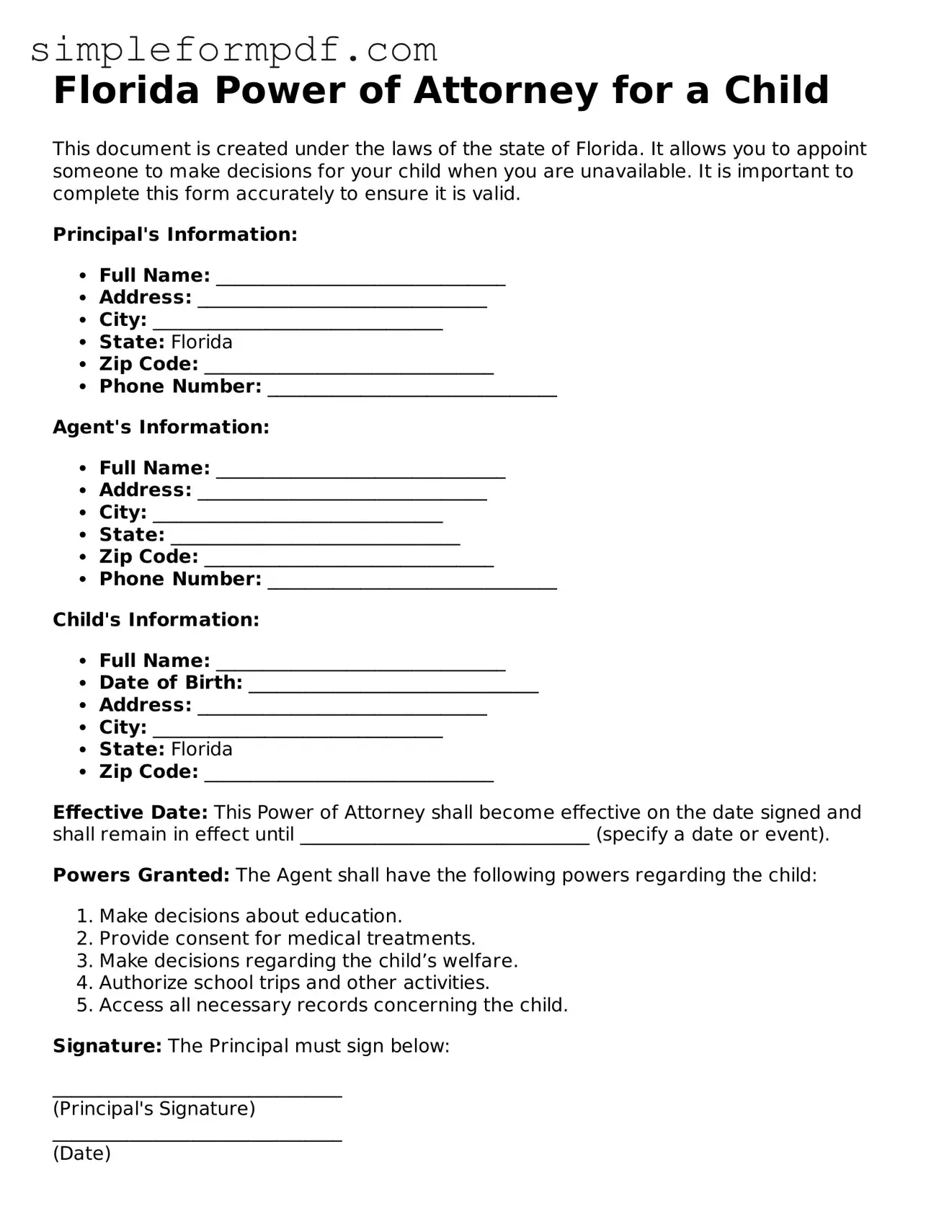Free Power of Attorney for a Child Form for the State of Florida
The Florida Power of Attorney for a Child form allows a parent or legal guardian to designate another adult to make decisions on behalf of their child in specific situations. This legal document can be essential for temporary guardianship, ensuring that a trusted individual can care for the child during the parent's absence. Understanding how to properly fill out this form is crucial for safeguarding your child's welfare, so consider taking action by clicking the button below.
Launch Editor

Free Power of Attorney for a Child Form for the State of Florida
Launch Editor
Need instant form completion?
Finish Power of Attorney for a Child online in just a few minutes.
Launch Editor
or
Download PDF
